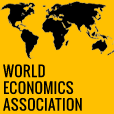The Two-Legged Strategy; How Batu City Farmers Rationally Navigate the Tourism Industry
Keywords:
Livelihood diversification; Bounded rationality; Social capital; Agritourism; Rural transitionAbstract
This study explores how farmers in Bulukerto Village, Batu City, rationally diversify their livelihoods amid an agricultural crisis and expanding tourism. It addresses three core questions; (1) how farmers respond to agrarian decline through diversification, (2) how unequal access, social capital, and agrarian identity influence their decisions, and (3) how theoretical synthesis explains this dynamic within structural constraints. The research combines James S. Coleman’s Rational Choice Theory, which highlights decisions based on material and non-material resources, cost-benefit logic, values, and social norms, with Henry Bernstein’s political economy approach, which emphasizes power structures, asset control, and class relations. To bridge these perspectives, the study also draws on the concepts of bounded rationality and embedded agency.
A qualitative case study approach was used, focusing on farmers in Bulukerto Village, Bumiaji Subdistrict, Batu City. Data collection techniques included semi-structured interviews, non-participant observation, and document review. Thematic analysis identifies three diversification types: (1) capital-based, involving formal tourism ventures by farmers with financial or institutional access; (2) labor-based, such as driving or guiding, pursued by low-capital farmers through informal networks; and (3) informal household-scale strategies led by women or youth, often using digital platforms. This study concludes that sustainable rural diversification requires equitable access to productive resources, digital upskilling, and inclusive tourism programs that preserve agrarian identity. It offers a multi-level analytical lens that integrates agency, social structure, and local context in understanding livelihood transitions in post-agrarian rural areas. Policy recommendations call for transparent resource allocation in tourism, empowering farmer cooperatives for fair benefit-sharing, and promoting agritourism that balances traditional land use with new income streams.
Downloads
References
Ahmad, M. I. et al. (2023) ‘Does rural livelihood change? Household capital, climate shocks and farm entry-exit decisions in rural Pakistan’, Frontiers in Environmental Science, 10(January), pp. 1–21. doi: 10.3389/fenvs.2022.857082.
Ariadi, B. Y. (2022) ‘The economic impact of climate change on the local apple’, Agriecobis : Journal of Agricultural Socioeconomics and Business, 5(1), pp. 73–82. doi: 10.22219/agriecobis.v5i1.20354.
Baby, J. and Kim, D. (2024) ‘Sustainable agritourism for farm profitability: Comprehensive evaluation of visitors’ intrinsic motivation, environmental behavior, and satisfaction’, Land, 13(1466). doi: 10.3390/ land13091466.
Badan Pusat Statistik Kota Batu (2011) Kota Batu dalam angka 2011. Kota Batu. doi: 1102001.3579.
Badan Pusat Statistik Kota Batu (2024) Kota Batu dalam angka 2024. Kota Batu. doi: 1102001.3579.
Badan Pusat Statistika Kota Batu (2021) Kota Batu dalam angka 2021. Kota Batu. doi: 1102001.3579.
Barros, G. (2010) ‘Herbert A. Simon and the concept of rationality: Boundaries and procedures’, Revista de Economia Politica, 30(3), pp. 455–472. doi: 10.1590/S0101-31572010000300006.
Bernstein, H. (2017) ‘Political economy of agrarian change: some key concepts and questions’, RUDN Journal of Sociology, 17(1), pp. 7–18. doi: 10.22363/2313.
Bires, Z. and Raj, S. (2020) ‘Tourism as a pathway to livelihood diversification: Evidence from biosphere reserves, Ethiopia’, Tourism Management, 81(March), p. 104159. doi: 10.1016/j.tourman.2020.104159.
Burbano, D. V. and Meredith, T. C. (2021) ‘Effects of tourism growth in a UNESCO World Heritage Site: resource-based livelihood diversification in the Galapagos Islands, Ecuador’, Journal of Sustainable Tourism, 29(8), pp. 1270–1289. doi: 10.1080/09669582.2020.1832101.
Cavalleri, S. A. E., Tanwattana, P. and Grünbühel, C. M. (2022) ‘Systemizing a rural livelihood diversification framework for sustainable community-based agritourism: A participatory approach to ensure resilience’, Frontiers in Sustainable Food Systems, 6. doi: 10.3389/fsufs.2022.993892.
Chen, Q. (2022) ‘Analyzing farmers’ cultivated-land-abandonment behavior: Integrating the theory of planned behavior and a structural equation model’, Land, 11(10). doi: 10.3390/land11101777.
Clark, M. et al. (2023) ‘Gendering the political economy of smallholder agriculture: A scoping review’, Social Sciences, 12(5). doi: 10.3390/socsci12050306.
Coleman, J. (2008) Dasar-dasar teori sosial. 1st edn. Bandung: Nusa Media.
Cordaro, F. and Desdoigts, A. (2021) ‘Bounded rationality, social capital and technology adoption in family farming: Evidence from Cocoa-tree crops in Ivory Coast’, Sustainability (Switzerland), 13(13). doi: 10.3390/su13137483.
Creswell, J. W. (2015) Penelitian kualitatif & desain riset memilih di antara lima pendekatan. 1st edn. Yogyakarta: Pustaka Pelajar.








